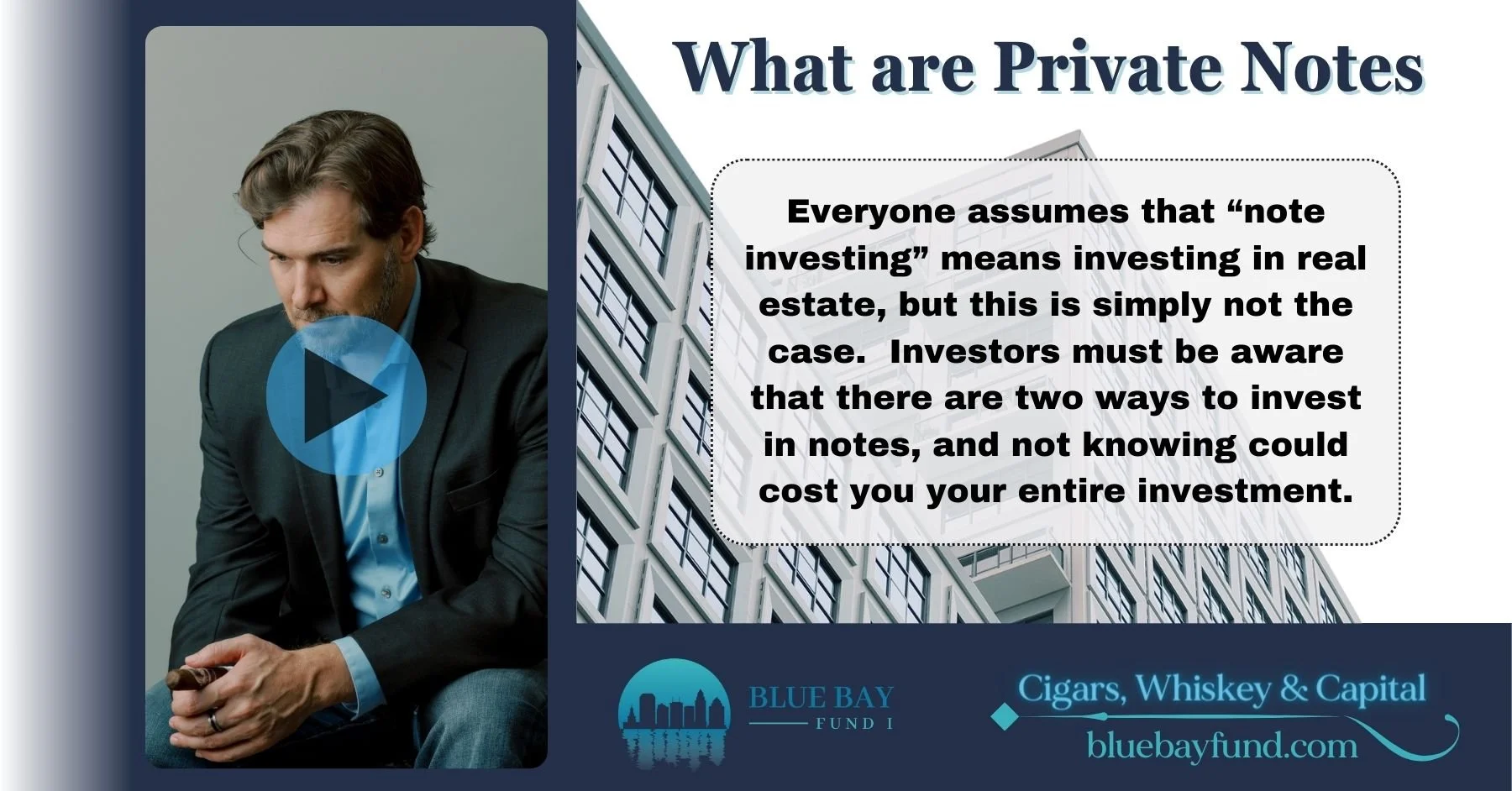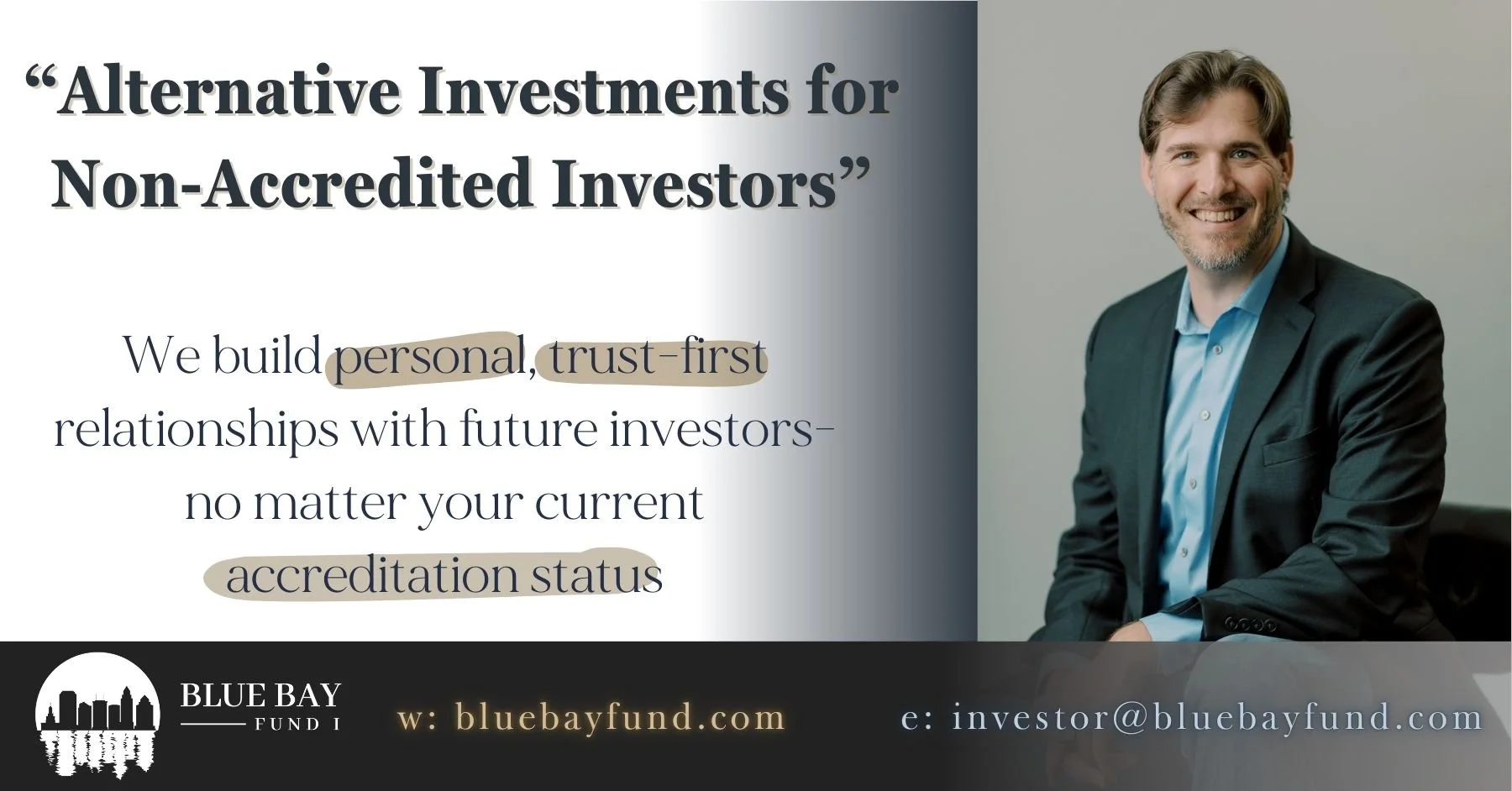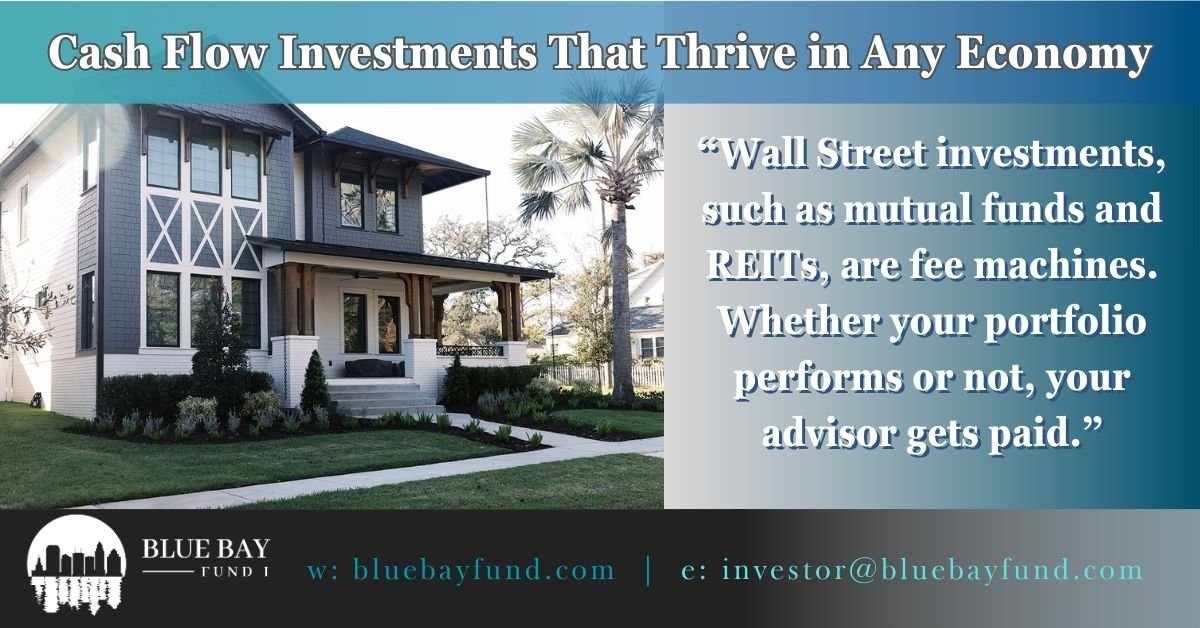CIGARS, WHISKEY & CAPITAL JOURNAL
Disciplined Thinking. Enduring Capital.
Cigars, Whiskey & Capital is Blue Bay Fund’s investment journal and perspective on alternative investment solutions. A place where disciplined private credit, leadership-driven wealth strategy, and long-term capital stewardship meet the mindset of serious investors.
01
Alternative Investment Perspective
02
Private Credit & Income
03
Capital Stewardship & Risk
What are Private Notes
The definition of a note is quite simple. A note is a physical representation of your capital (the lenders) given to you by the borrower. The note tells all parties involved how much you are lending, what is the rate of return, when you should expect that note to be repaid, and the payment structure of the note. This is just like REAL money because it’s a legally binding document, enforceable in court that is a representation of the exact amount of money you loaned. Keep it secret, keep it safe.
Alternative Investments for Non-Accredited Investors: Opportunities Beyond Wall Street.
Tired of being shut out of the most rewarding investment opportunities? Accessing alternative investments for non-accredited investors is hard. In fact, less than 10% of private real estate deals are accessible to non-accredited investors. Access—not intelligence or capability—is the key differentiator. Smart investors start where they are and build relationships over time.
Mortgage Note Investing for Passive Real Estate Income
As a conservative, accredited investor, you're tired of market swings, Wall Street jargon, and hidden fees. You want clarity. You want control. And above all, you want cash flow backed by real assets. That’s where mortgage note investing comes in.Through Blue Bay Fund I, you can invest in mortgage loans based on bank statements and other secured structures—offering transparency, risk mitigation, and steady income. This is not speculation. This is investing in notes and mortgages with integrity and vision.
Real Estate Self Directed IRA for Legacy Wealth
Highlights investors care about
8–10% annual yield targets
Low LTV ratios (Max 75% to under 65%)
12–18 month terms for flexibility
Monthly income distributions; reinvestment of monthly earnings to achieve compounding interest
No stock market exposure
Manager “skin in the game”. Every loan made by Blue Bay Fund is first made 100% by our fund manager, Edwin Epperson. Investors then backfill our manager's position with their own selected amount.
Cash Flow Investments: Secure Income, Preserve Capital
Discover why cash flow investments backed by real estate are outperforming traditional assets in 2025.
In this article, Edwin Epperson II, manager of Blue Bay Fund I, reveals how accredited and sophisticated investors are building generational wealth through debt-based real estate investing. With monthly income, low risk, and high control, these structured strategies are turning the tables on Wall Street. Learn how to invest like a banker—not a gambler—and explore real estate-secured notes that offer protection, liquidity, and returns in any economy.
Discover Incredible Accredited Investor Opportunities
For accredited investors seeking secure and consistent returns, private debt funds are an excellent option. They offer predictable cash flows with the added benefit of being backed by valuable assets. Private debt funds lend capital to borrowers in exchange for fixed interest rates. These loans are often secured by real estate or other tangible assets, providing an added layer of protection for investors. In return, investors receive regular interest payments, creating a steady income stream.
How to Beat REIT’s and Syndications with Blue Bay Fund
Investing in real estate investment loans work the same way, but the borrowers are investors, not homeowners, and you play the role of the banker. Your loan is secured by investment properties, providing a layer of protection while you earn interest without managing properties yourself.
The real estate investor is now the one who is responsible and liable to pay the taxes, insurance, and your monthly payments. The real estate investor has to deal with the three big “T’s” of RE Investing; Tenants, Termites, and Taxes!
How To Use A Personal Capital Retirement Calculator?
Unsurprisingly, finances are a top priority for people approaching retirement age. Knowing how much you need to retire comfortably and confidently is extremely important. Yet, it can be challenging, as inflation and the increase in the cost of living will quickly erode your ability to retire. So, how can you address your concerns effectively and efficiently?









